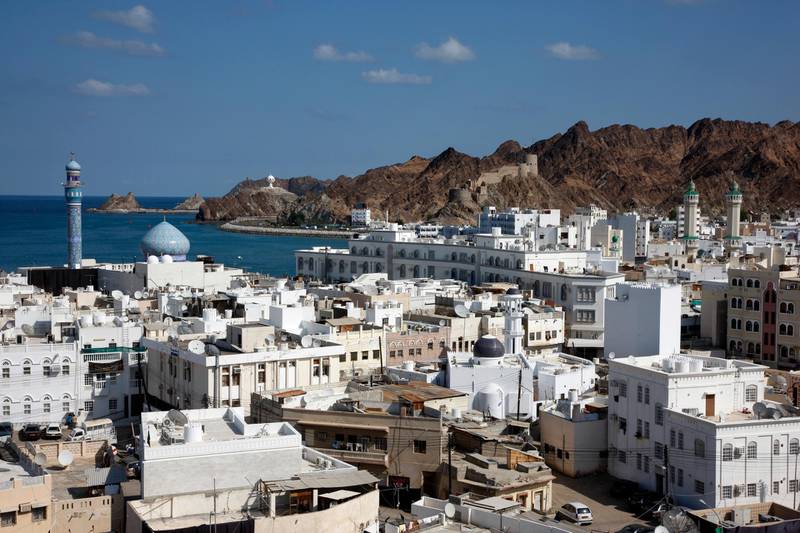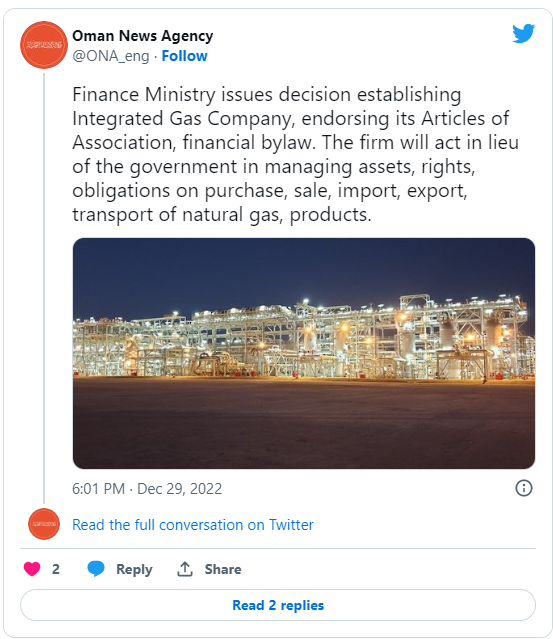Move is expected to improve the Gulf country's economic indicators
Oman, the largest non-Opec producer in the Middle East, expects to post a budget deficit in 2023. Corbis
Oman plans to establish an integrated gas company to manage all natural gas assets, including exports and imports of the commodity and its derivative products.
The formation of the new entity by Oman’s Finance Ministry is aimed at improving the country’s economic indicators by excluding gas purchase and transport costs from the general state budget, the Oman News Agency reported on Thursday.
The move will “upgrade” the efficiency of the sector by recognising the net revenue from gas sales, the ONA report said.
Oman’s net oil revenue in the first 10 months of 2022 jumped by about 40 per cent to 6.19 billion Omani rials ($16.10 billion) while gas revenue surged by about 80 per cent to 3.05 billion rials.
Oman, the largest non-Opec producer in the Middle East, expects a budget deficit of 1.3 billion rials in 2023, or 3 per cent of its gross domestic product, after an initial forecast of a budget surplus for 2022, Oman's Ministry of Finance said in a report last week.
The country expects total public revenue to rise to 11.65 billion rials next year, up 10 per cent from 10.58 billion rials in revenue in the approved budget for 2022.
In November, S&P Global Ratings raised Oman's long-term sovereign credit rating to “BB”, from “BB-”, with a stable outlook.
A “BB” rating indicates that a debtor is less vulnerable in the near-term but faces economic uncertainty.
“Oman's fiscal and external positions are benefitting from government reforms and higher oil prices,” the rating agency said at the time.
“In addition to rebuilding fiscal buffers on the back of windfall oil revenue, the Omani government has continued to reduce the budget's reliance on oil receipts, in line with its medium-term fiscal plan to 2025.”
As is the case with other Gulf countries, Oman is enjoying a surge in economic activity linked to higher oil prices.
Brent, the benchmark for two thirds of the world’s oil, is currently trading at about $82 a barrel, after falling to less than $30 in 2020.









